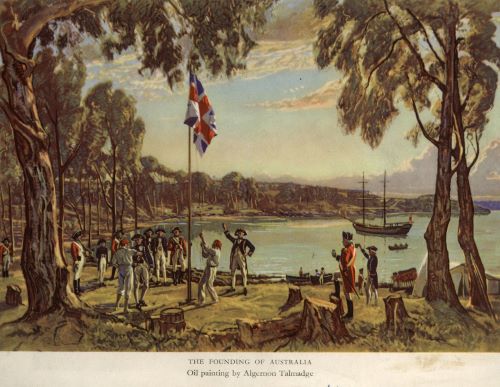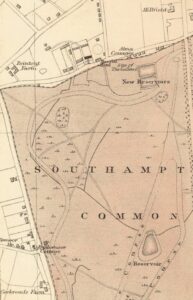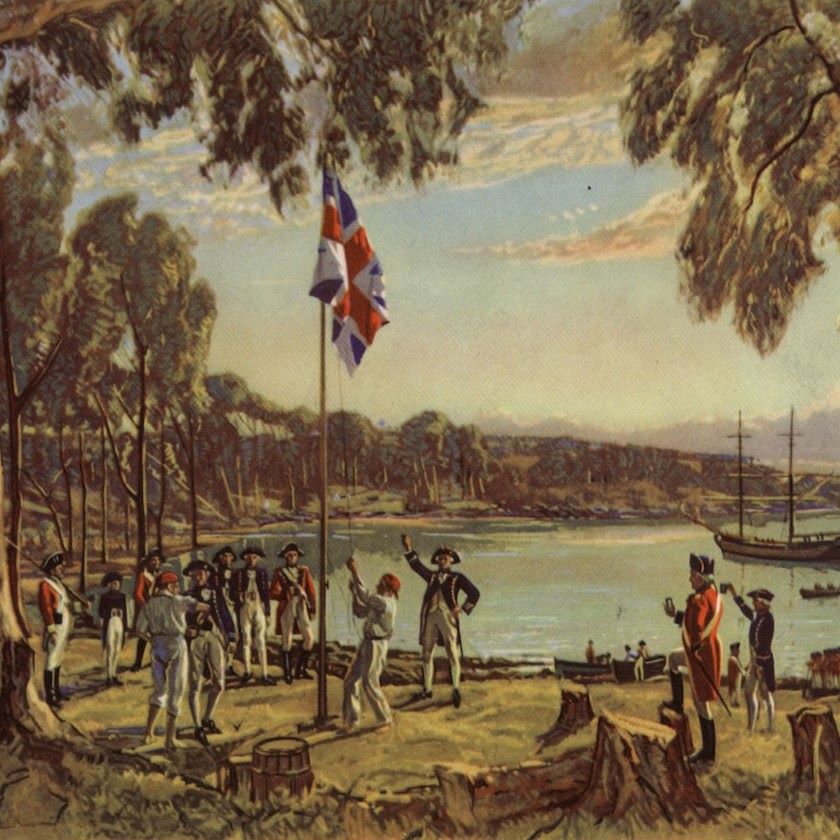by Martin Brisland.
There is an old belief that the punishment should fit the crime. Yet, in the past, you could be hanged for 160 different crimes including chopping down a tree or poaching rabbits.
William Shawyer was the last person to be publicly hung at the gallows on Southampton Common on 27 July 1785. He had stolen silverware from Mrs. Bagenal, a former employer in Southampton.
I have previously written about Charles Smith who was hung for poaching in 1822. He had wounded the gamekeeper’s assistant on land owned by Lord Palmerston who lived at Broadlands in Romsey. Unusually he has two gravestones in the graveyard of St. John the Baptist church in North Baddesley.
The big divide between the rich and the poor, who often took risks to survive, meant that British gaols soon filled up. Some were kept on prison ships moored at Langstone Harbour, near Portsmouth.

The empire-building British government seized on the idea of sending prisoners to populate a new colony. Around 136,000 men and 25,000 women were transported to Australia over about 80 years. Southampton and Winchester provided around 2,000 convicts. Admiral Arthur Philip RN (1738-1814) is seen as the so-called founder of modern Australia. He lived and farmed 32 acres at Lyndhurst in the New Forest.
The first fleet of eleven convict ships under his command embarked on May 1787 landing on January 26th, which is today celebrated as Australia Day. On arrival female convicts were assigned as servants and men were sent farming. The typical term was seven years, at the end of which they were, technically, free and could save the £30 for a passage home.
Charles Dormer was transported in 1817 “for stealing fowls”. Seven years later he raised the fare to return to Hampshire, only to be transported again for stealing a horse. Others sentenced to transportation for life at Winchester during the Lent Assizes in 1823 were William Blandford for stealing a bay horse, James Godden for setting fire to hay ricks, and Peter Coombs, 14, for stealing five sheep. Southampton-born John Jones was sentenced for stealing a shirt. In Van Diemen’s Land (now Tasmania) he received 50 lashes for “using beastly language.”

In Dorset, there was the famous case of the six Tolpuddle Martyrs. In 1834 they were convicted of swearing an oath as members of a trade union, the Friendly Society of Agricultural Labourers and transported to Australia. Trade Unionists still gather at Tolpuddle every May Day to remember them.
James Kennedy, 17, was deaf and lived in Southampton with his parents. He was transported in 1802.
The voyage was dangerous especially for women. Eliza Smith took exception to the attentions of the first mate on her convict ship and “attempted to strangle him by twisting his neckcloth tightly around his neck.” One journey had convicts crammed below decks with bad food and hygiene and 278 died.
“As they came ashore,” the Sydney Cove Chronicle wrote in June 1790, “such as could not carry themselves crawled upon all fours. Those unable to move were thrown over the side, as if sacks of flour, into the small boats.”
Billy Hunt tried absconding “dressed as a kangaroo and attempting to hop to freedom, only to be shot by rationed soldiers who had grown accustomed to enjoying hearty kangaroo stews.”
- In Common is not for profit. We rely on donations from readers to keep the site running. Could you help to support us for as little as 25p a week? Please help us to carry on offering independent grass roots media. Visit: https://www.patreon.com/incommonsoton

